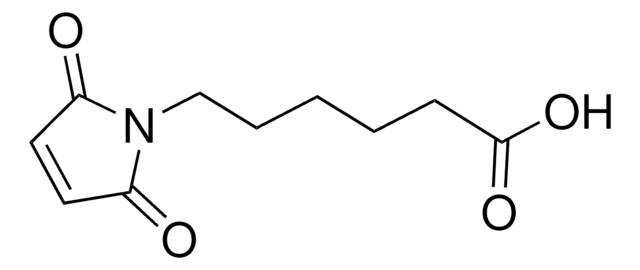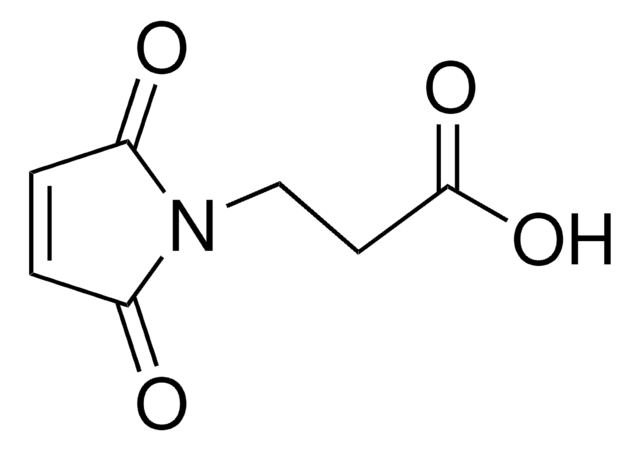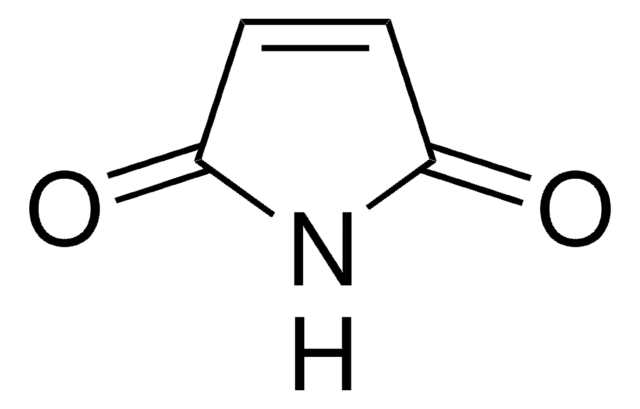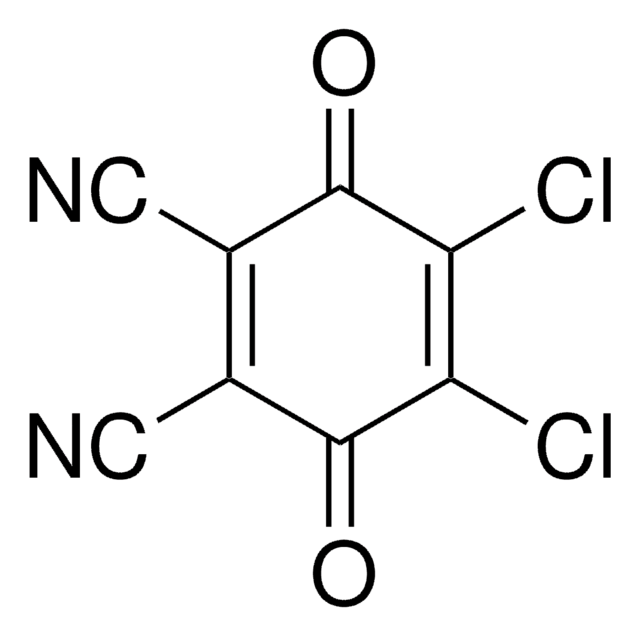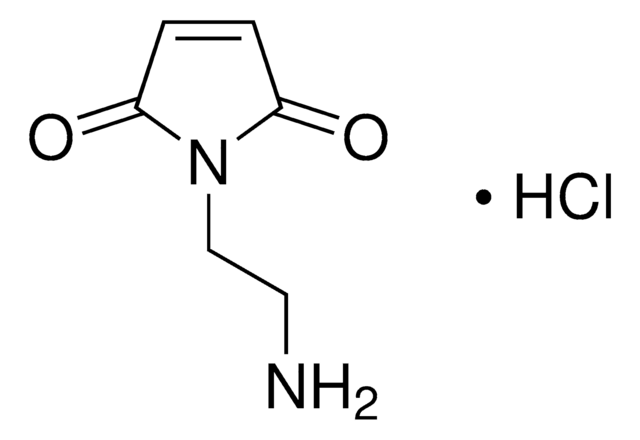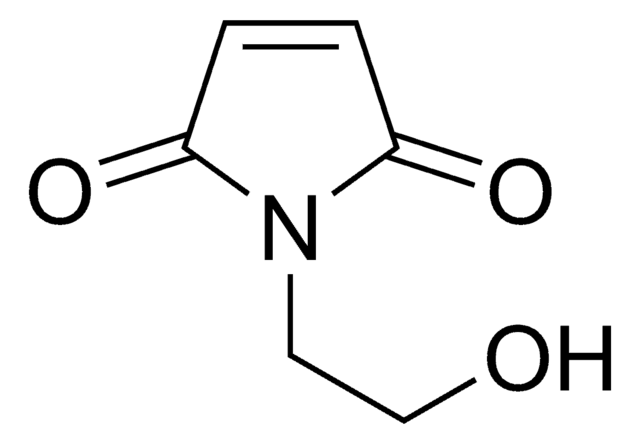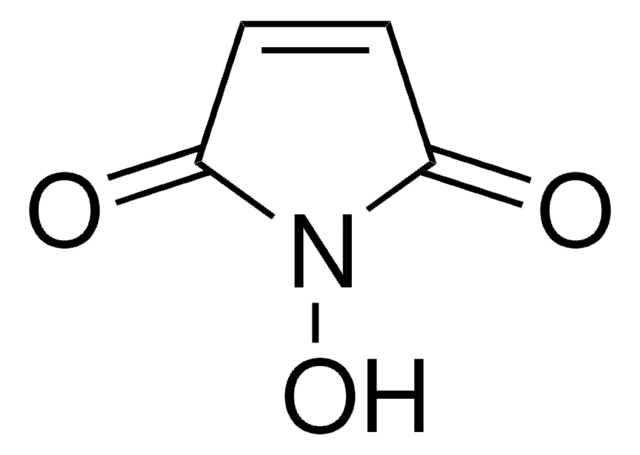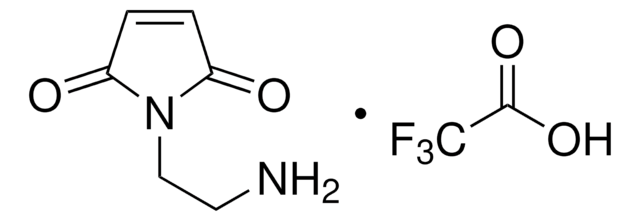755850
11-Maleimidoundecanoic acid
95% (GC)
Synonym(s):
11-Maleimide undecanoic acid, 2,5-Dihydro-2,5-dioxo-1H-pyrrole-1-undecanoic acid, MM-281, MUDA, Maleimidoundecanoic acid
About This Item
Recommended Products
Quality Level
assay
95% (GC)
form
powder
mp
94-98 °C
SMILES string
OC(=O)CCCCCCCCCCN1C(=O)C=CC1=O
InChI
1S/C15H23NO4/c17-13-10-11-14(18)16(13)12-8-6-4-2-1-3-5-7-9-15(19)20/h10-11H,1-9,12H2,(H,19,20)
InChI key
UVZTZBRGZXIBLZ-UHFFFAOYSA-N
Related Categories
General description
Application
signalword
Warning
hcodes
Hazard Classifications
Eye Irrit. 2 - Skin Irrit. 2 - STOT SE 3
target_organs
Respiratory system
Storage Class
11 - Combustible Solids
wgk_germany
WGK 3
flash_point_f
Not applicable
flash_point_c
Not applicable
Choose from one of the most recent versions:
Certificates of Analysis (COA)
Don't see the Right Version?
If you require a particular version, you can look up a specific certificate by the Lot or Batch number.
Already Own This Product?
Find documentation for the products that you have recently purchased in the Document Library.
Customers Also Viewed
Our team of scientists has experience in all areas of research including Life Science, Material Science, Chemical Synthesis, Chromatography, Analytical and many others.
Contact Technical Service